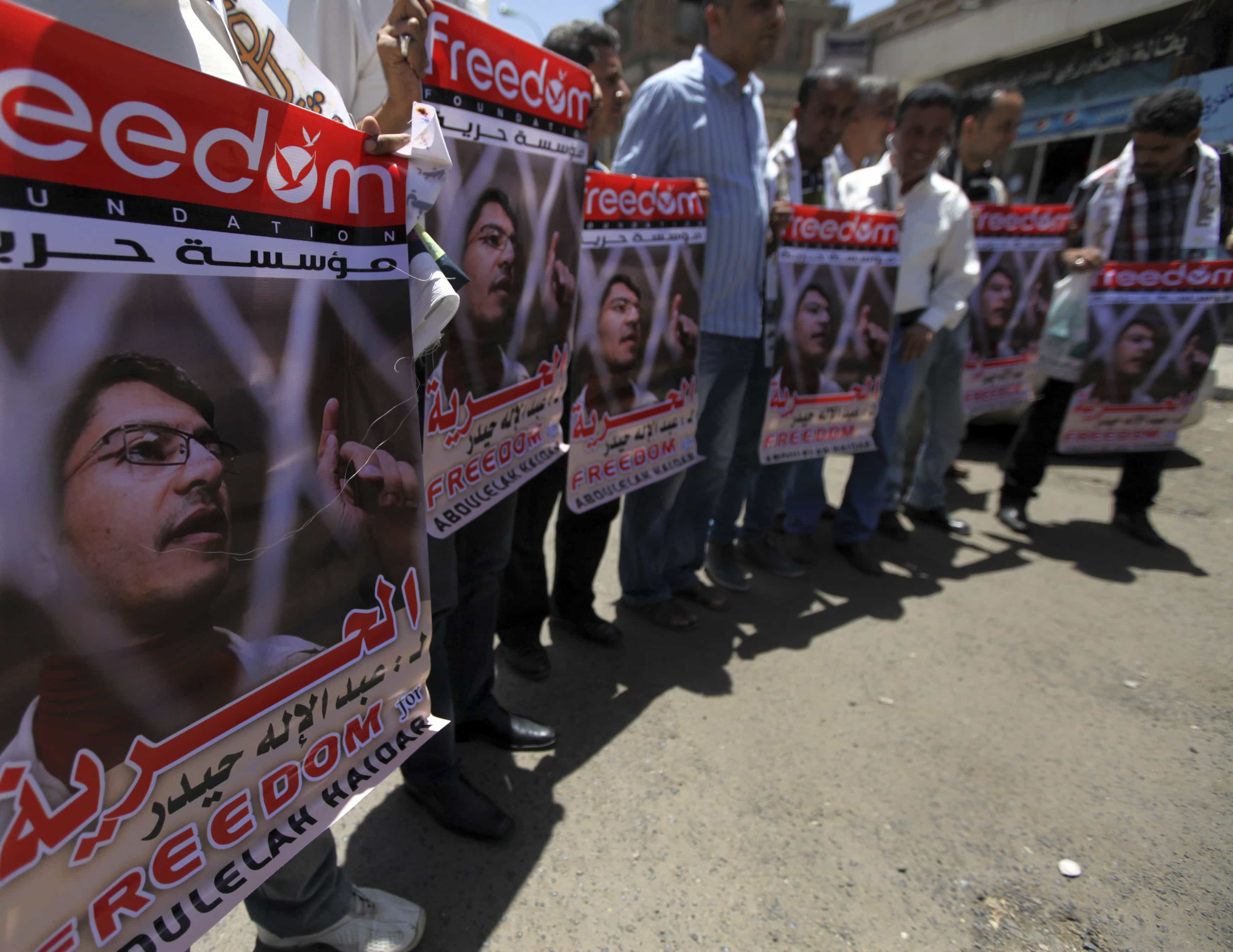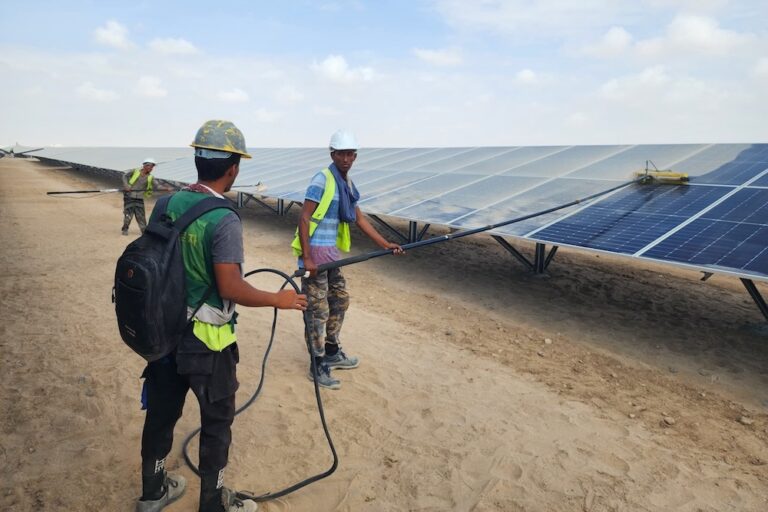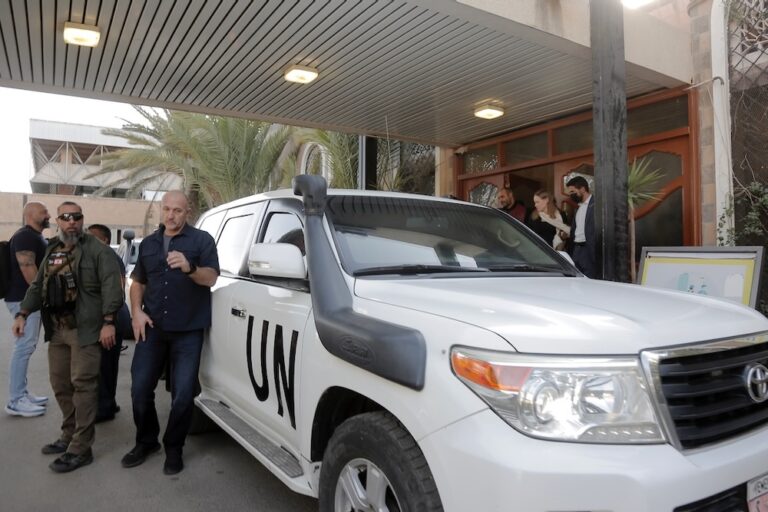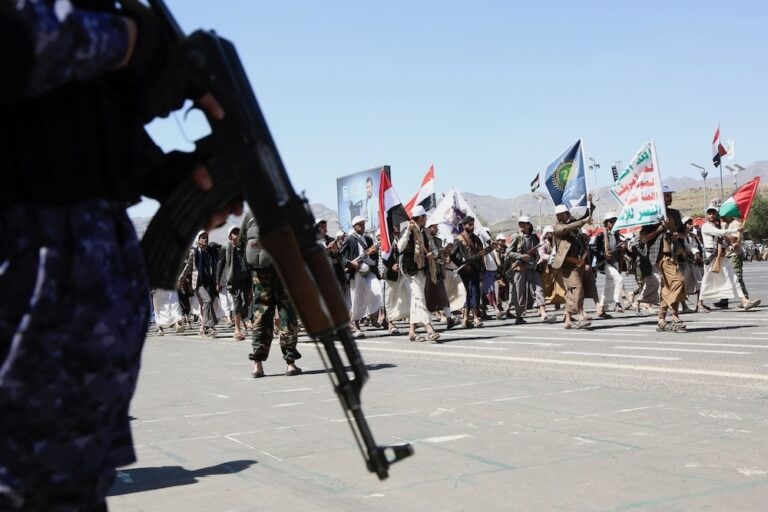As a global campaign to release journalist Abdulelah Haider Shaye from prison picks up speed, other Yemeni journalists are finding it increasingly hard to do their jobs amid death threats and attempted attacks orchestrated at the hands of a variety of Yemeni factions with different agendas.
Just weeks after U.S. President Barack Obama was awarded the 2009 Nobel Peace Prize, an American cruise missile armed with cluster bombs struck an alleged al-Qaeda camp in Southern Yemen killing 35 women and children.
Yemeni journalist Abdulelah Haider Shaye was the first to expose U.S. responsibility for the attack. In January 2011, he was arrested by Yemeni security forces, convicted of “terrorism-related charges” and sentenced to five years in prison.
As controversy regarding his imprisonment mounted in Yemen, Shaye was pardoned in February 2011 by Yemen’s former president Ali Abdullah Saleh, but was denied release following the reported direct intervention of President Obama. He remains in prison to this day.
Freedom Foundation, a local Yemeni media watchdog, has launched an international advocacy campaign calling for Shaye’s release. As part of its campaign, it has drawn up a petition to be sent to both President Obama and Yemeni President Abd Rabbuh Mansur Hadi through Avaaz, a global online campaigning network. It aims to collect a million signatures.
Shaye’s continued imprisonment illustrates the poor state of press freedom in Yemen even after Saleh’s ouster. In the past couple of weeks, media freedom organisations including Reporters Without Borders (RSF) and the Committee to Protect Journalists (CPJ) have raised the alarm regarding the increasingly hostile climate of lawlessness and impunity endangering journalists in Yemen today.
Abdul-Raqeeb al-Hudayyani, editor-in-chief of the news website Aden Online, told CPJ that he received anonymous death threats after his website published an article on 5 March alleging corruption within the government-owned daily 14 October. The paper denied all accusations and said Aden Online had cited forged documents. More than a month later, a judge told al-Hudayyani the paper had filed a case against him for forging documents, the journalist said.
In another case, Mohammed Ayesh, editor-in-chief of the daily independent Al-Oula, told CPJ he has received several death threats in phone messages since 9 April. Originating from both domestic and foreign numbers, the messages threatened to kill him, cut off his hand or cut out his tongue.
On 10 April, three journalists working for the independent TV station Al-Suhail were attacked by armed individuals outside the station’s headquarters in Sana’a. All three were hospitalised, according to RSF.
Freedom Foundation also reported that a journalist with the daily newspaper Al-Thawra, Mohammed Qa’ed al-Azizi, was threatened by gunmen on 16 April in Sana’a. Al-Thawra reported that the assailants demanded the journalist stop writing about corruption. Freedom Foundation told CPJ that the incident may be related to the paper’s recent investigation of illegal prisons run by tribal leaders in Sana’a.
On 19 April, the International Press Institute (IPI) reported on an attempted bombing of the headquarters of Yemen Shabab TV and al-Masdar newspaper. Fortunately, the attack was thwarted – but it would have caused massive damage if it was successful.
“Yemeni journalists face an array of threats from a wide range of sources,” said Sherif Mansour, CPJ’s Middle East and North Africa Coordinator, insisting that authorities must apprehend those who attack and threaten journalists in order to discourage impunity and protect press freedom.



